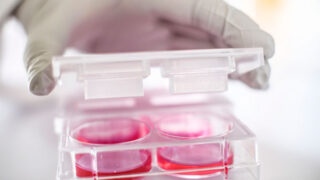Japan´s foremost medical institute purchases multiple HoloMonitor instruments
Japan’s foremost medical research institute, The Institute of Medical Science at University of Tokyo, recently purchased two HoloMonitor M4.5 instruments for a total list price of €75 000, excluding discount. Together with RIKEN and Kyoto University, the institute spearheads Japan’s national effort to become the undisputed leader of regenerative medicine in the world.

All specialized cells in our bodies (e.g. muscle, blood and brain cells) originate from stem cells. Stem cells are unspecialized cells that under certain conditions transform into tissue- or organ-specific cells. Regenerative medicine aims to control and harness the power of stem cells to repair or replace diseased cells, tissues and organs. Cell therapies and regenerative medicine promise to treat and cure some of the most devastating and costly diseases in the world today.
Conventional drug development uses cultured cells to test a new drug before it is tested on humans. Regenerative medicine is radically different in that the cells themselves are the treatment. Traditional methods are ill-suited to study stem cells as they require the cells to be stained. The toxicity of these stains alters cell behavior and make transplantation impossible. HoloMonitor allows scientists to study how stem cells develop into specialized cells without using these toxic stains.
Articles about regenerative medicine in Japan and at University of Tokyo
- Forbes: Will Humans One Day Regenerate Lost Limbs And Replace Diseased Organs?
- Scientific American: Could Diet Change Help Treat Blood Cancer or Transplant Patients?
- Bloomberg: Stem Cell Crusader Sparks New Hope for Fighting Diabetes, Heart Disease – Regenerative medicine could be a $120 billion industry by 2030
The above information was made public pursuant to the EU Market Abuse Regulation.



